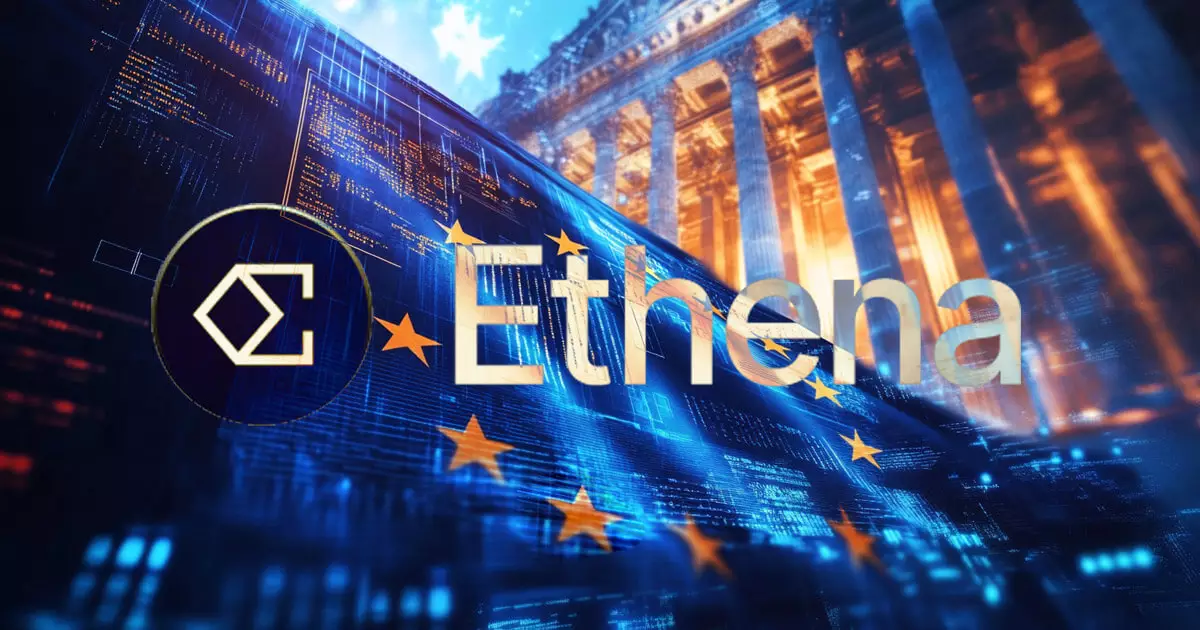In a significant move that makes waves across the European crypto landscape, Germany’s Federal Financial Supervisory Authority, known as BaFin, has thrown shade on Ethena Labs. This Frankfurt-based entity faced a sharp rebuke regarding its application to issue asset-referenced tokens under the European Union’s Markets in Crypto-Assets Regulation (MiCAR). The rejection is not just about denial; it signals deeper issues that concern regulatory compliance, financial practices, and the chaotic milieu surrounding digital currencies. While many might dismiss this as another regulatory hurdle, the implications are genuinely alarming for those vested in the crypto economy.
What Went Wrong?
BaFin’s ruling highlighted “significant deficiencies” in Ethena’s organizational practices. This vague phrasing raises eyebrows about what these deficiencies entail and suggests a troubling lack of transparency within the company’s operations. The rejection is primarily predicated on concerns surrounding asset reserves and capital adequacy, indicating that Ethena has not met the minimum requirements to ensure financial security for users. The chilling effect of BaFin’s ruling is evident; they have prohibited any further public offerings of the USDe token in Germany and ordered the freezing of reserve assets. This is not merely a regulatory slap on the wrist; it threatens the very foundation of trust that investors place in asset-backed tokens.
The Broader Implications of Regulatory Oversight
This ruling isn’t merely an isolated incident; it’s a piece within a larger puzzle of regulatory evolves in Europe. The scrutiny faced by various stablecoin issuers reveals deep-seated tensions between innovation and regulation. Major exchanges have already delisted Tether USD (USDT) due to compliance concerns, indicative of an atmosphere where crypto entities must walk on eggshells to avoid regulatory pitfalls. The nuance here is that while USDT has not been outright deemed non-compliant, under MiCAR, there is increasing pressure on these digital assets to strictly align with existing legal frameworks.
The fact that Ethena GmbH continued issuing tokens post-application for authorization shows a mindset that directly challenges regulatory norms. It raises questions about the intentions behind the issuance of 5.4 billion USDe tokens—many issued before MiCAR’s enforcement—suggesting a head-in-the-sand approach to compliance or an outright defiance of established guidelines. This is a troubling trend that, if left unchecked, could usher in a wave of regulatory action that disrupts the entire crypto ecosystem in Europe.
The Challenges of Hybrid Instruments
BaFin’s objections to the sUSDe token extend beyond simple compliance issues; they delve into the murky waters of hybrid financial instruments. The token is not just a stablecoin; it has yield-bearing characteristics that potentially classify it as a security under German law. This raises an essential issue: how do we categorize financial instruments that blend conventional assets with novel structures? The classification of sUSDe as a security due to its promised profits highlights the pressing need for regulators to reassess how they approach tokenized finance. The outcome of this case could have a critical influence on similar hybrid systems that blur the lines between tokens and securities across the EU.
Ethena Labs’ Response: A Prelude to Future Moves
In response to BaFin’s verdict, Ethena Labs has taken a conciliatory approach, expressing intent to evaluate alternative frameworks for compliance. Their public statement about exploring various regulatory landscapes globally appears more reactive than proactive, revealing a company under duress. The assertion that the decision won’t impact minting and redemption activities facilitated by their British Virgin Islands (BVI) entity seems like a partial dismissal of a serious concern. This desperate pivot could resonate poorly with investors and users alike, who are now left wondering about the company’s long-term viability.
And while Ethena Labs wipes its brow and readjusts its strategy, the undercurrents of worry within the crypto community are palpable. The fate of sUSDe and similar instruments hangs in a delicate balance, teetering on regulatory interpretation and market trust.
The unfolding saga of Ethena Labs serves as a clarion call for a finely-tuned regulatory environment where innovation meets sound financial practices. The implications of BaFin’s rejection go far beyond a single token; they frame the larger discourse on the sustainability and legality of crypto assets in an era seeking regulation.















Leave a Reply